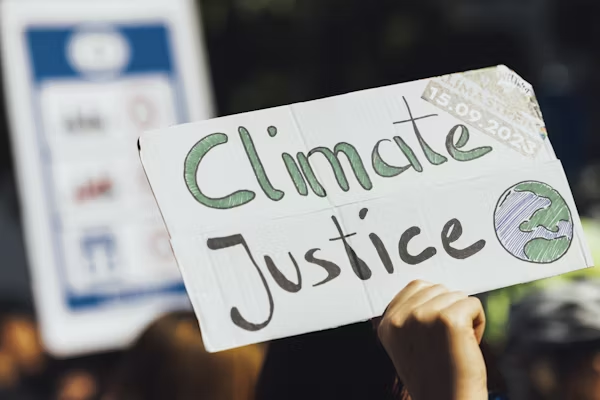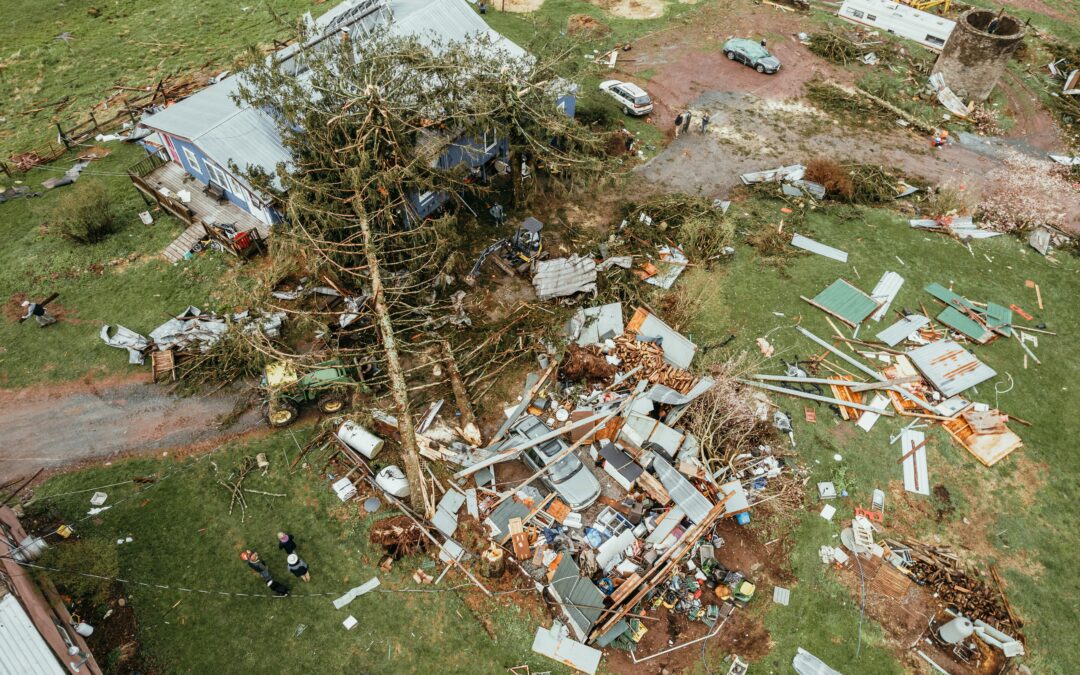by Benjamin Life in Omniharmonic…Start small. Start where you are. Start with what you have. But start. Because the infrastructure for life-affirming governance begins with the first agreement between people who say: “We’re ready to govern ourselves in service to life.”
Donella meadows revisited
by Donella Meadows with Calvin Po in Future Observatory Journal… In this previously unpublished text, the renowned systems thinker sets out a vision for bioregional learning centres. Four decades on, we provide a critical annotation from today’s perspective
Texan stoicism provides comfort, and excuses, after the flood
by J. David Goodman in The New York Times…Texans often draw on the idea of their own self-reliance during times of adversity. Gov. Greg Abbott has used it to deflect tough questions.
Disaster 101: Your guide to extreme weather preparation, relief, and recovery
by Lyndsey Gilpin in Grist…No matter where you live, extreme weather can hit your area and change your life. Whether it’s a hurricane, winter storm, flash flood, tornado, wildfire, or heat wave, disasters can damage or destroy your home and property, cause lengthy power outages, and stall civic services. Grist created a comprehensive guide to help you stay ready and informed before, during, and after these traumatic and chaotic events, as well as where to find and build support in your community.
We are the great turning
by Joanna Macy and Jess Serrante on Sounds True Podcast Network…We are the great turning takles Love, Courage, and Connection in the Climate Crisis.
What this climate scientist wants you to know about human nature
by Kate Marvel in Atmos…I don’t know which of these worlds is more likely. Science says that as long as human beings emit greenhouse gases by cutting down trees and burning fossil fuels, the planet will keep getting warmer. Physics says this will mean higher sea levels, heavier rainfall, worse and longer droughts. It says nothing about how we should feel about this. And it says nothing about what we’ll decide to do. The future remains uncertain. But I’m sending my children there, and they are never coming back. I think about it every day. And then, I feel.
More in this category
Experts: Which climate tipping point is the most concerning?
from Carbon Brief…I am particularly worried about tipping points that involve the biosphere and humans due to breaching thresholds for heat or drought that then ripple into food availability, livelihood and ecosystems.
Global drought hotspots report catalogs severe suffering, economic damage
by United Nations press release…Food, water, energy crises, human tragedies in 2023-2025 detailed in sweeping analysis by U.S. National Drought Mitigation Center
and the UN Convention to Combat Desertification
Droughts worldwide pushing tens of millions towards starvation, says report
by Fiona Harvey in The Guardian…Water shortages hitting crops, energy and health as crisis gathers pace amid climate breakdown
Thinking long-term about infrastructure
by School of International Futures…75 years is a long enough period of time for the world to change in ways that are unanticipated. For this reason, scenarios that take a longer term view should have within them elements that are genuinely discomfiting.
Global wheat yields would be ‘10%’ higher without climate change
by Orla Dwyer in Carbon Brief…Climate science has “done a remarkable job of anticipating global impacts on the main grains and we should continue to rely on this science to guide policy decisions”, Lobell, the lead study author, says in a press release.
He adds that there may be “blind spots” on specialised crops, such as coffee, cocoa, oranges and olives, which “don’t have as much modelling” as key commodity crops, noting:
“All these have been seeing supply challenges and price increases. These matter less for food security, but may be more eye-catching for consumers who might not otherwise care about climate change.”

‘All of his guns will do nothing for him’: lefty preppers are taking a different approach to doomsday
by Aaron Gell in The Guardian…Liberals in the US make up about 15% of the prepping scene and their numbers are growing. Their fears differ from their better-known rightwing counterparts – as do their methods.

The planetary politics of everyday life
by Nils Gilman in Small Precautions…In conclusion, the analysis provided by La Fabrique Écologique powerfully argues that the ecological transition in France, and likely elsewhere, is stalled not because the science is unclear or the public unwilling, but because the dominant strategies have ignored the fundamental prerequisites of social justice and economic security.

Climate crisis on track to destroy capitalism, warns top insurer
by Damian Carrington in The Guardian…Action urgently needed to save the conditions under which markets – and civilisation itself – can operate, says senior Allianz figure.
Bioregionalism in practice: Weaving local solutions in a global context
Webinar hosted by Regenerosity…This webinar kicks off a new series of bioregional conversations, designed to deepen understanding, improve practice, and expand the horizon of what’s possible when we center life, land, and community. Through stories, case studies, and grounded examples, we’ll begin to weave a vibrant patchwork of regenerative pathways forward.
Welcome to the chaoscene
by Rupert Read in aeon.com…The climate crisis is here. In order to thrive in these dangerous and precarious times, we must build resilient communities.
Bioregioning: the defining practice of regenerative cultures
by Daniel Wahl in Medium…..Bioregions define the appropriate scale for regional self-reliance, responsible environmental action and human participation in the community of life.
Ecological disruptions are a risk to national security
by Bradley J. Cardinale, et al in The Conversation…When the natural environment is stretched beyond its ability to meet basic human needs for food, clean air, drinkable water and shelter, it is not just a humanitarian concern for the world community. Research shows that these crises are a matter of national security for the U.S. and other countries.
The future is in our roots
from blog by Nnimmo Bassey…When one part of an ecosystem is destroyed, it impacts or destroys all the other parts. This means, nothing exists in isolation of everything else. Thus, the web of life is the interrelationships that hold everything together – something we often do not think about.

The last drops of Mexico City
by Rodrigo Cervantes and Jérôme Sessini on longlead.com…Every day, for most of her life, Norma, a 68-year-old woman from the outskirts of Mexico City, has struggled to get something that many of us take for granted: drinking water.

We’ve failed to stop climate change — this is what we need to do next
by Ben Spencer in The Sunday Times…While we can still limit warming by cutting emissions, we now face having to adapt to more extreme weather

